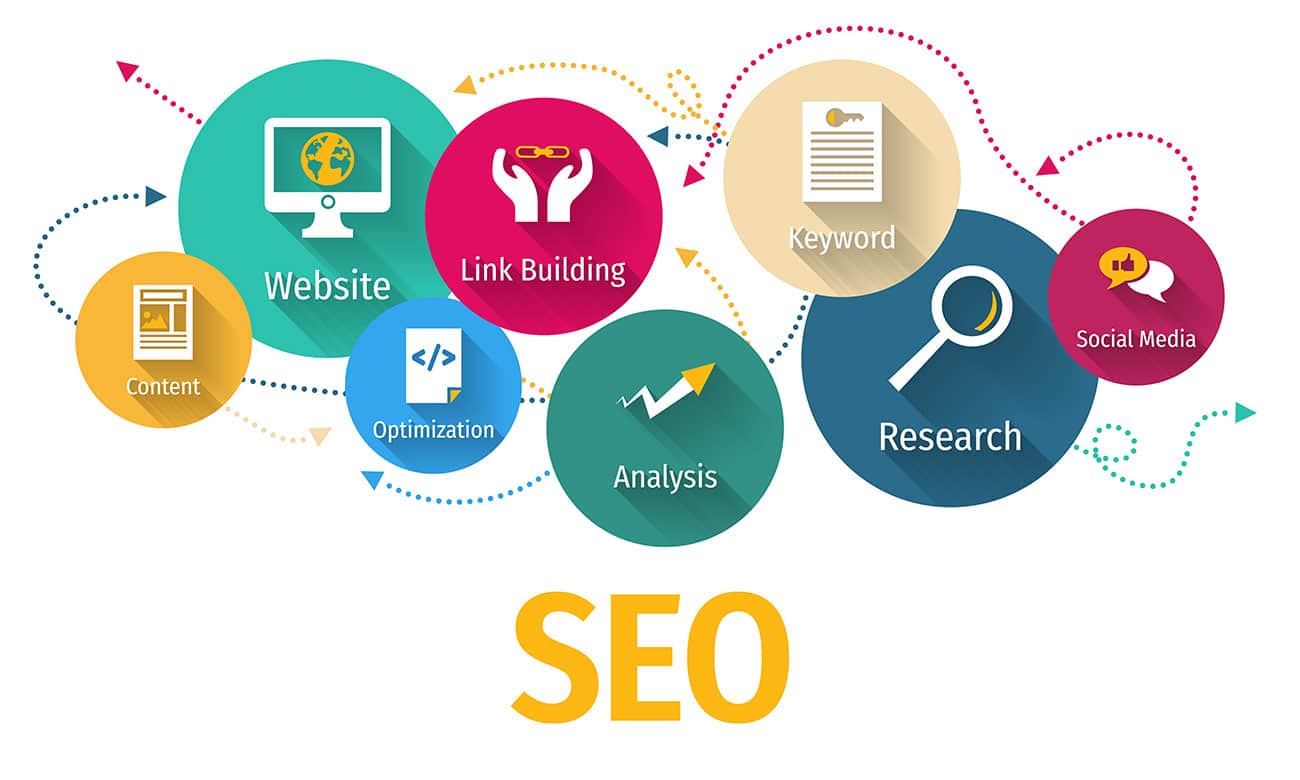The digital landscape, particularly in the realm of Search Engine Optimisation (SEO), is in a constant state of flux. To maintain high visibility and competitiveness in Google’s search results with your enterprise, it’s imperative to stay abreast of the most recent developments in SEO trends.
Our guide provides an overview of the most salient current trends in SEO.
Top 5: The Latest Trends in Search Engine Optimisation
#1 – AI-Generated Content with a Human Touch
Whilst AI models like Chat GPT have made impressive strides in automated content creation, the human touch remains crucial for a successful content strategy. The challenge lies in effectively blending both approaches.
Ill-conceived SEO strategies and excessive AI application can be counterproductive. Search engines like Google penalise content that is unoriginal or irrelevant. Authentic, user-friendly content necessitates a human touch. Here are some best practices to achieve this:
-
- Use AI for drafting
- Invest time in fine-tuning
- Maintain your brand’s tone
- Understand your target audience
- Be concise
- Infuse creativity
#2 – Content That Puts People at the Centre
Since Google’s “Helpful Content Update,” the focus has increasingly shifted towards content that provides genuine value to the reader, thus enhancing user experience quality. Hence, content should no longer be created solely with search engines in mind but should be comprehensive, informative, and relevant to the target audience.
Content creators who prioritise their audience generate content that is both informative and SEO-optimised. They consider three main criteria:
- Need-based orientation
The content should be specifically tailored to the needs and questions of the target group. - Expertise
The content should demonstrate your expertise in the relevant area. - User satisfaction
Content should be designed to make readers feel well informed and satisfied.
To avoid a search engine-centric approach, pose the following questions to yourself:
- Is the sole purpose of my content creation to generate search engine traffic?
- Am I producing posts on various topics, hoping to score in search results?
- Am I merely summarising existing content without providing added value?
#3 – Long-tail keywords and semantic search
So far, the focus of SEO strategies has been on short keywords, but the trend has shifted to long-tail keywords and semantic search, which better matches users’ actual intentions. This evolution requires a deeper understanding of user intent and necessitates a strategic reorientation of content strategies.
Long-tail keywords are specific, longer search terms with lower search traffic but higher conversion rates. In the past, the focus was on short search terms. Today, however, search engines are better at understanding user intent and context. Semantic search is therefore becoming increasingly important. It uses natural language processing to better capture the purpose of a search query.
Tips for optimizing your content for long-tail keywords and semantic search:
- Conduct keyword research to find long-tail keywords for your business.
- Create comprehensive content that answers users’ questions.
- Use related keywords to create context and establish semantic relationships.
- Optimize “featured snippets” by providing concise answers to frequently asked questions.
#4 – Quality over quantity
Quality over quantity is not a new concept in search engine optimisation, but it is becoming increasingly important. Search engines place more value on quality content that adds value to users than on the quantity of content produced.
Best practices for creating quality content are:
- Understand user intent and create content that meets their needs.
- Use original research, data and insights to add value and thought leadership to users.
- Make content visually appealing and easy to understand.
- Provide comprehensive information on a topic and answer users’ questions (FAQs).
- Integrate testimonials and customer reviews for more trustworthiness.
#5 – Optimisation of the user experience
Optimising the user experience is more important today than ever before. Search engines are placing more and more emphasis on a satisfying user experience, and businesses need to adapt to this trend in order to maintain their digital visibility. Important factors here include website speed, mobile-friendliness, accessibility and user engagement. These factors affect how users interact with your website and how search engines rank your content.
To be successful in search engine optimisation, you need to stay up-to-date and be able to react flexibly to changes. With a well thought-out strategy and the necessary expertise, you can strengthen and sustainably improve your presence in the search results.
As a long-standing Google-Partner, we are happy to support you in the development and implementation of effective SEO strategies.


